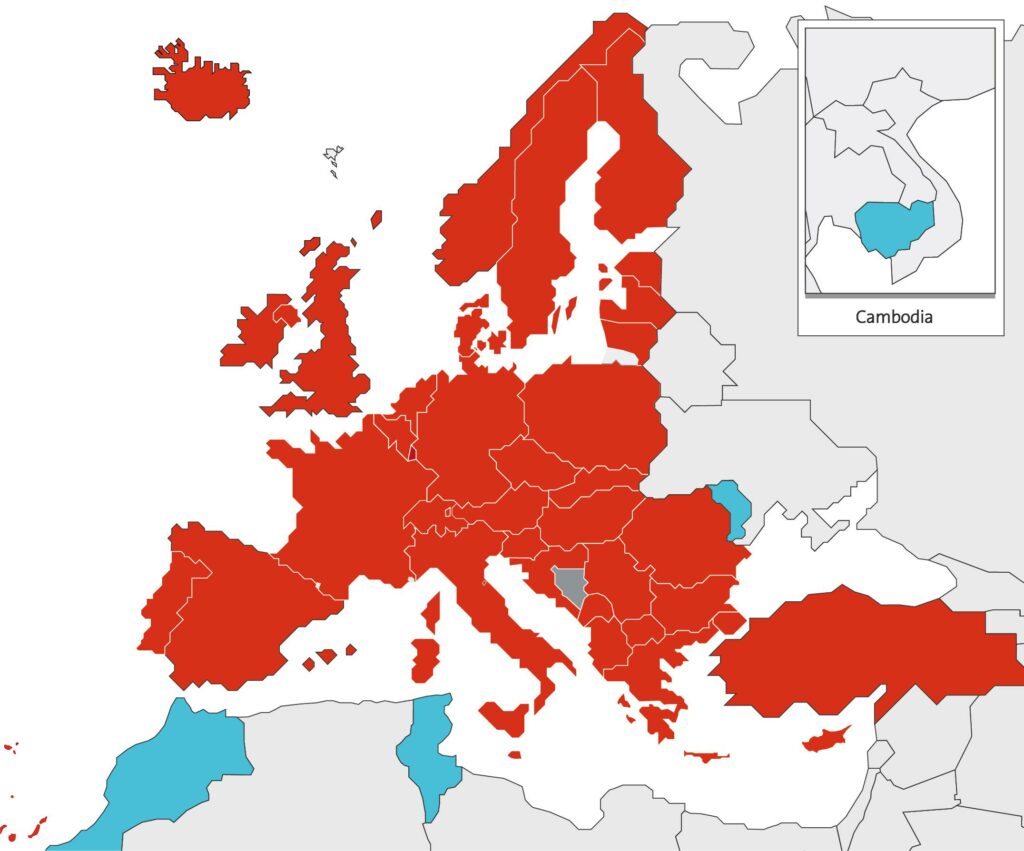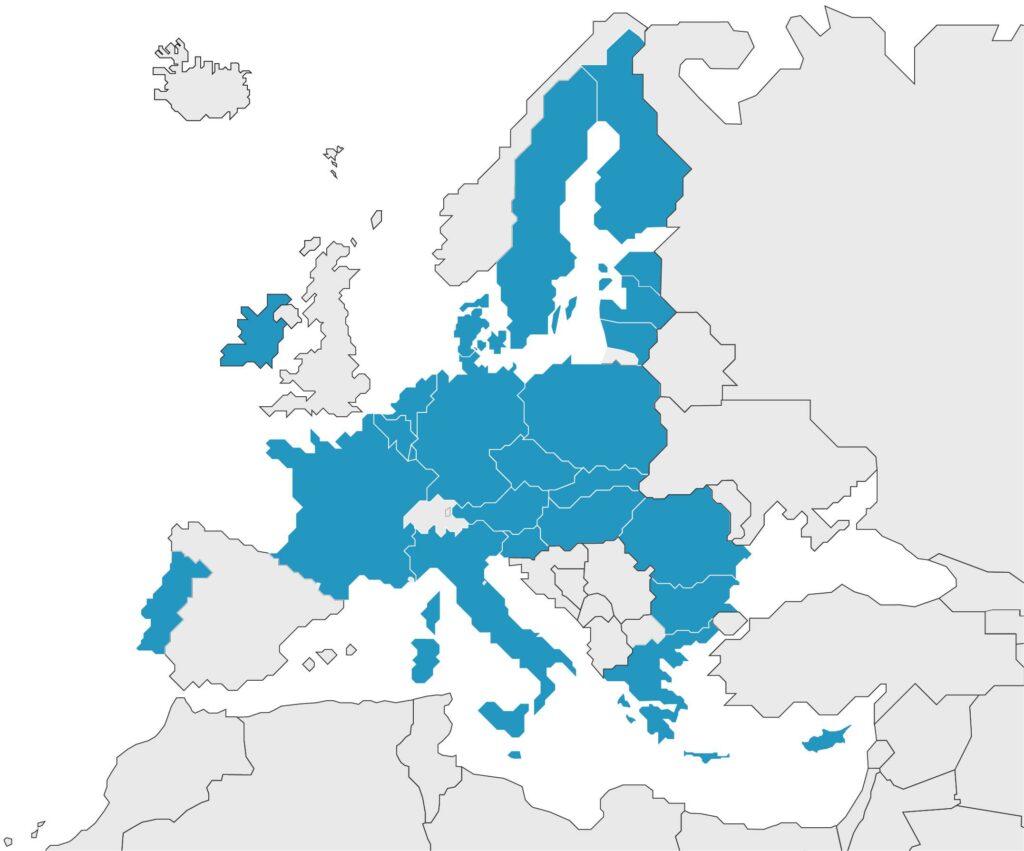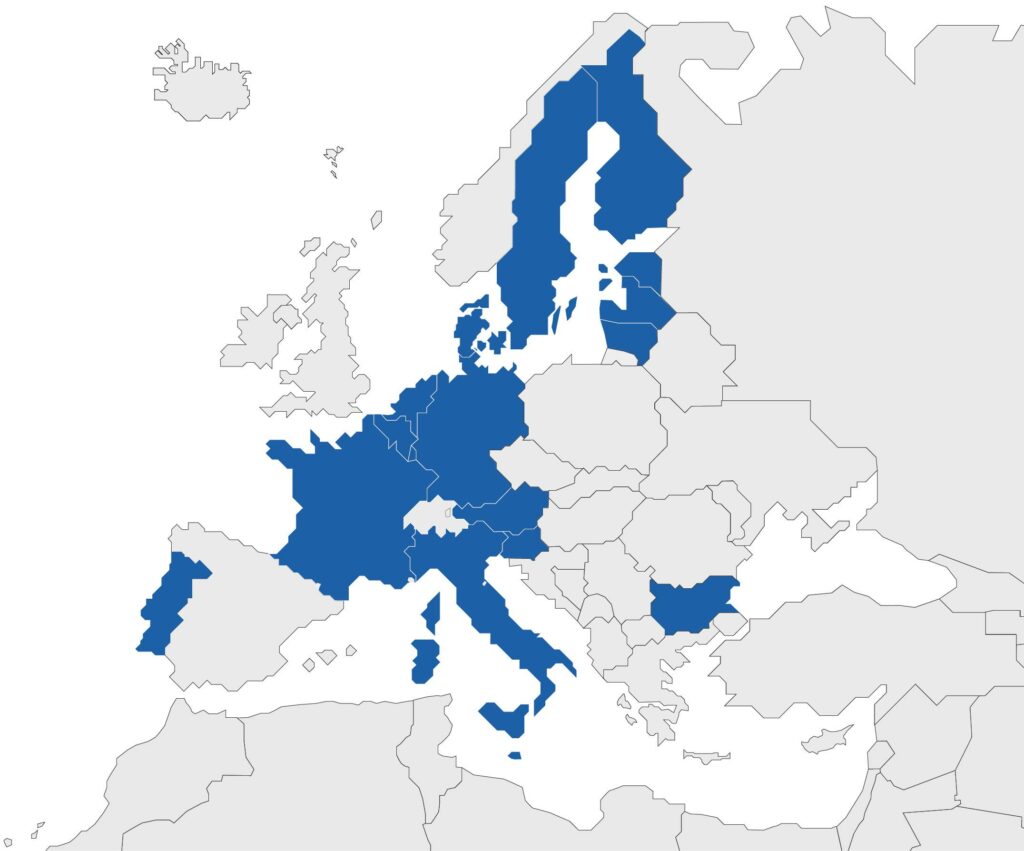
Patents
« Should my innovative project be protected by a patent? »
We will identify the inventions that are capable of being patented and suggest appropriate strategies for the purposes of protecting your business.
We offer strategic advice on developing your design portfolio and measuring its value, in particular by means of audits and due diligence, and on any contractual transactions associated with your rights. We identify the inventions that can be patented :
- in the fields of electronics and information technologies,
- chemistry,
- biology,
- biotechnology,
- pharmaceutics,
- healthcare,
- mechanical engineering or telecommunications.
If you have created software, you should be aware that its functionalities could be patented if it provides a technical solution to a technical problem. We will therefore help identify the patentable content in your software and protect this content as a technical invention.
We identify the inventions that can be patented in the fields of electronics and information technologies, chemistry, biology, biotechnology, pharmaceutics, healthcare, mechanical engineering or telecommunications. If you have created software, you should be aware that its functionalities could be patented if it provides a technical solution to a technical problem. We will therefore help identify the patentable content in your software and protect this content as a technical invention.
We undertake the filing of your patent application at the INPI (National Institute of Industrial Property), the EPO (European Patent Office) or any other foreign patent office, directly or via an international PCT application. We monitor the examination proceedings for the patent application, prepare the responses to any objections raised by the offices, monitor the grant and undertake payment of the renewal fees.
We can conduct opposition or revocation actions against a patent which could be a threat to your business, where such procedures exist. LLR has analytical tools that have been developed in-house, including Crystal®, a tool specially adapted for Freedom-To-Operate review for its clients. This is an innovative tool for managing Freedom-To-Operate (FTO) studies which we have developed to meet our clients’ needs. It is a highly effective method for assessing risks/strengths in relation to industrial property. It allows to assess the key patents for a technology and their nuisance value vis-à-vis market participants’ products in the form of a summarizing matrix. This method is particularly suitable for audits carried out for the purposes of assessing the value of a technology (Due Diligence).
Our firm is in a particularly good position to promote the Unitary Patent and Unified Patent Court (UPC) project, as we keep well-informed about its development. We collaborate with lawyers when needed and several members of our team are prepared for the introduction of the UPC. Where infringement proceedings have already been commenced in the courts, whether you are a claimant or a defendant, we evaluate your chances of success or risks of being found liable and help you to put together a strategy of attack or defence. We guide you towards reaching a settlement agreement if that is beneficial to your interests.
Unitary patent
“Is it in your interest to request the unitary effect of a granted European patent?”
We can help you determine whether it makes sense for your company to apply for the unitary effect of a European patent, which is be possible since 1st June 2023, and/or to validate the patent in certain countries in the traditional way.
For this purpose, we provide you, free of charge, with our general cost simulator, which enables you to compare the costs between the different possible options, according to the countries of interest. In addition, to refine this general simulator, we can provide you with more precise data on the costs involved, based on the text of the patent concerned (the costs depend in particular on the size of the texts for countries in which translation is required).

1) Geographical coverage of the classic European patent
As detailed on the EPO website, protection by a classic European patent can be obtained in 39 member states (in red color on the map), plus one state authorizing extension (in gray color) and five states authorizing validation (in blue color).
Until June 2023, it was possible to apply for a European patent in one or more of these states by paying the relevant fees at the time of the examination request, and then confirming the protection applied for before each national patent office under certain conditions of translation and representation (validation procedure) on receipt of the decision to grant the European patent.
2) New unitary validation since 1st June 2023

- Enhanced cooperation (25):
Of the 27 States of the European Union (EU), 25 have agreed to take part in enhanced cooperation (all the EU except Spain and Croatia) in order to propose a designation with unitary effect for the European patent. These 25 states are shown in light blue color on the map here.

States currently participating in the unitary patent (18) :
Nevertheless initially, on June 1, 2023, only 17 States (in dark blue on the map below) out of the 25 were ready and participating in the unitary designation. Furthermore, as of 1st September 2024, Romania becomes the 18th state to ratify the agreement. The annual cost of the unitary effect is equivalent to four annual fees for separately validated States.
In parallel with the usual validation procedure, it is therefore possible to apply for unitary protection for all 17 of these states within one month of issuance (with more to come).
3) Transitional measure and arbitration
For a period of 6 years (extendable once), i.e. until 2035 at the latest, a full translation of the patent with unitary effect is required (if the language of the proceedings is French or German, translation into English, otherwise translation into an official language of an EU member state other than English).
Consequently, at the time of issue, the interest of the unitary effect for the holder must be weighed.
As Spain and the UK cannot benefit from unitary effect, if protection for France, Germany, Spain and the UK is desired, unitary effect does not appear to be financially advantageous, or at least, the additional cost of a much wider territorial coverage obtained by unitary effect may not be accepted by the holder. A cost comparison (see our cost simulator) must therefore be carried out for each grant.
In addition, litigation concerning unitary effect patents will necessarily be brought before the Unified Patent Jurisdiction, as classical European patents can, for the time being, escape this obligation.
Unitary effect cannot be requested for European patents that have been granted for more than one month.
Patentability opinion
« Does your invention involve an inventive step? »
We use our indepth practical knowledge of the EPO practice, the legislation and the case-law to asses this particular requirement.
A patentability opinion consists in assessing the likelihood of an invention to be patentable by an office (for example the National Institute of Industrial Property (INPI) in France or the European Patent Office in Europe).
Although they are sometimes interpreted differently, the main criteria, apart from a few exceptions, are those set out below:
- Does your invention fall under the exceptions from patentability according to the law? And according to case-law? For example, software is usually not patentable under the European Patent Convention. Nevertheless, under certain circumstances, case-law permits the patenting of certain software.
- Is your invention actually an invention as defined by the law? For example, a scientific discovery is not an invention. However, it is very much possible to protect one or more applications of a discovery.
- Is your invention novel over the prior art? In this regard, we analyse the prior art documents which is provided to us or we conduct a search in order to determine novel elements of your invention, i.e. those which could be patentable.
- Does your invention involve an inventive step? Conversely, would a person skilled in the art have been directed in an obvious manner to obtain the invention? Here too, we use our knowledge of the practice of the various offices and the relevant law and jurisprudence, in order to assess this criterion.
This expertise in economic intelligence not only allows you to access information about your competitors, but also enables you to adapt your own strategy.
Validity opinion
«How can I found out how robust my patent is before I enforce it against a third party? »
Do you wish to know how robust your patent application or patent is before relying on it against a third party, for example a potential infringer? We place our expertise at your disposal to assess the validity of your patent rights. This is generally a two-stage process.
Firstly, we review the examination proceedings of the patent application in detail in order to verify in particular whether the requirements relating to novelty, inventive step, sufficiency of disclosure and additive of subject matter beyond the content of the application as filed are satisfied.
Then, upon request, we can also carry out a supplementary prior art search to identify relevant documents other than the ones located by the patent examiner during the examination of the application and which could affect the actual scope of the patent.
Freedom-to-operate
« What expertise do you have on the subject of freedom to operate? »
At your request, we conduct Freedom-To-Operate analyses, in which we examine the validity and scope of industrial property rights that are potentially problematic and are owned by third parties. These property rights may have been identified in-house or detected by us in the context of a Freedom-To-Operate search. We discuss each case with you, not only in order to determine the risks incurred, but also to sketch out or define workarounds in the event of difficulties. This discussion may lead to you making a new invention, and we will then analyse what protection may be envisaged for that invention.
LLR has an original analytical tool – Crystal®. This innovative tool for managing Freedom-To-Operate (FTO) studies was developed in accordance with our clients’ needs. Based on a highly effective method of assessing risks and strengths relating to intellectual property, it allows the key patents for a technology and their nuisance value vis-à-vis market participants’ products to be presented in the form of a summarizing matrix. This method is particularly suitable for audits carried out for the purposes of estimating the value of a particular technology (Strategy).
Oppositions
« How can I defend myself against an opposition lodged by a third party against my European patent?»
Whether you are bringing an opposition or defending it, we will review the documents in the file and advise you of the best possible strategies available
An opposition is lodged by a third party against your European patent. What can be done ?
We review the statement of grounds of opposition filed by the opponent and we help to establish a defensive strategy.
A competitor is the owner of an European patent that prevents you from using some of your products. However, you consider that this property right is clearly not valid. What can be done?
- We evaluate the chances of success of opposition proceedings against this patent and help you to establish a suitable strategy adapted to your particular needs.
- We study the prior art documents to challenge the validity of the patent in question. We also review the examination procedure that led to the grant of the patent and we try to identify all grounds of opposition.
- We subsequently draft a statement of grounds of opposition and then respond to any counter arguments filed by the owner.
- We can represent you in the oral proceedings if such proceedings are requested.
- At the end of the opposition proceedings, we consider whether it is appropriate to lodge an appeal and, if so, we prepare a statement of grounds for this purpose.
Revocation action
« How can I challenge a third-party right »
A revocation action can be brought before the courts or before the trademark offices, depending on the territory.
The objective of such an action is to have the opposing trademark revoked on the grounds that it creates a likelihood of confusion with yours, it does not meet the substantive requirements for validity of a trademark, or it is not used.
Our firm will assist you in these proceedings, and assist lawyers where necessary.
Whether you are pursuing or defending:
- we verify the opposing party’s rights,
- we analyse the signs,
- we review the validity of the opposing party’s trademark,
- in order to assess your chances of success.
After that, we monitor the proceedings, study Offices’ decisions and, where appropriate, advise on the opportunity of filing appeal proceedings.
We can also assist you in China to invalidate a Chinese invention patent or utility model patent. This involves a re-examination procedure, during which the validity of the patent is examined by the Patent Re-examination Chamber of the CNIPA (Chinese Intellectual Property Office).

